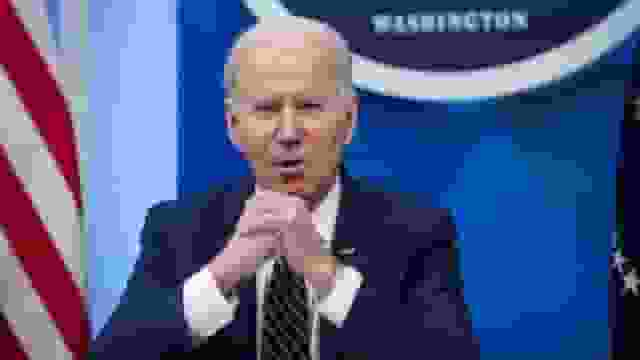According to the emails, the Biden administration made contact with Tesla on its first day in office, kicking off a string of discussions on the subject between federal officials and businesses associated with the EV sector in the months that followed.
One of Biden’s top priorities in the fight against climate change is broadening the scope of the U.S. Renewable Fuel Standard (RFS) to make it a tool for electrifying the country’s vehicle fleet, as seen by the administration’s early and comprehensive outreach.
The RFS, a federal initiative that was launched in 2005, calls for a minimum percentage of renewable fuels to be used in transportation fuels sold in the US. It has mostly served as a subsidy for ethanol made from corn up until this point.
The White House’s outreach to Tesla also demonstrates that the Biden campaign attempted early on to include the automaker in one of its core policy goals, despite a public vendetta between Biden and Tesla CEO Elon Musk. By 2030, Biden wants half of all new vehicles sold to be zero-emission automobiles.
The U.S. Environmental Protection Agency, which oversees the RFS, is anticipated to announce proposed changes to the regulation sometime this year, establishing new winners and losers in the multibillion-dollar market for credits known as RINs that have long supported corn growers and biofuels producers.
There are early indications that the administration is leaning in favour of a regulation that would assist automakers like Tesla by giving them the largest access to so-called e-RINS, or electric RINs. According to industry players, the reform might also extend the subsidies to allied sectors like landfills that produce renewable biogas for power plants and auto charging businesses.
Maureen Walsh, director of federal policy with the American Biogas Council, said at a conference in May, “We have heard via the grapevine that vehicle companies are really, really going to embrace this rule.” However, she continued, “We have all been working at that pile.”
Since Biden’s transition team focused on EVs as a job-friendly answer to the climate challenge, the concept of integrating EVs in the RFS gained traction after years of discussion. More than 25% of greenhouse gas emissions in the United States are related to transportation.

Inquiries for comment were not answered by the White House.
In its assessment of RFS policy, the EPA said that “all interested stakeholders” were being consulted.
Following the current RFS, oil refiners must either incorporate ethanol and other biofuels into their fuel pool or purchase RINs from those who do. In the states of the Farm Belt, this approach has sparked an economic boom. Environmentalists, however, claim that the increased grain output harms the land and water while extending the age of the internal combustion engine, which has infuriated them.
An environmental organisation called Friends of the Earth expressed its criticism of an e-RIN initiative. The group views the RFS as a measure that has failed to boost the production of newer, lower-carbon fuels while simultaneously hurting the environment. Additionally, it sees expanding the initiative as a step toward using more wood and wood waste as feedstocks for power production.
“To address subsidies for ethanol made from unclean corn, the RFS should be changed. It shouldn’t be increased to include more subsidies for factory farming and woody biomass “spokeswoman for Friends of the Earth Lukas Ross.
A prominent Tesla lobbyist named Rohan Patel received an email from an EPA employee named Dallas Burkholder the morning of Joe Biden’s inauguration as president in January 2021, setting up a meeting to discuss how to include electric vehicles in the RFS. Records indicate that they set up a meeting for a week later.
According to the records, the Biden EPA has since held additional talks on the subject with Tesla, associations for waste management and municipal services, as well as organisations for charging station providers including ChargePoint Holdings Inc.
According to the emails, the EPA has also scheduled at least one meeting to discuss the revisions with members of the White House staff, including climate adviser Ali Zaidi.
Read more:-
- Northeast Ohio’s Need for Food Assistance Is Being Driven by Inflation
- A Florida Senator Has Proposed Legislation to Reduce SNAP Work Requirements to Pre-pandemic Age Limits
- Largest Us Cities With the Lowest SNAP Benefit Use
The Biden White House has been a steadfast backer of the EV market, banking a large portion of its climate aspirations on increasing the number of electric vehicles on the road. For new EV charging stations, the bipartisan infrastructure plan that was passed last year includes $7.5 billion, and Biden has fought to bring back expired tax incentives to assist consumers in paying for new cars.
Musk, the CEO of Tesla, has nonetheless frequently clashed with the White House and sent out critical tweets about Biden. After Musk continually complained about being ignored, Biden publicly acknowledged Tesla’s contribution to the production of electric vehicles in February.


